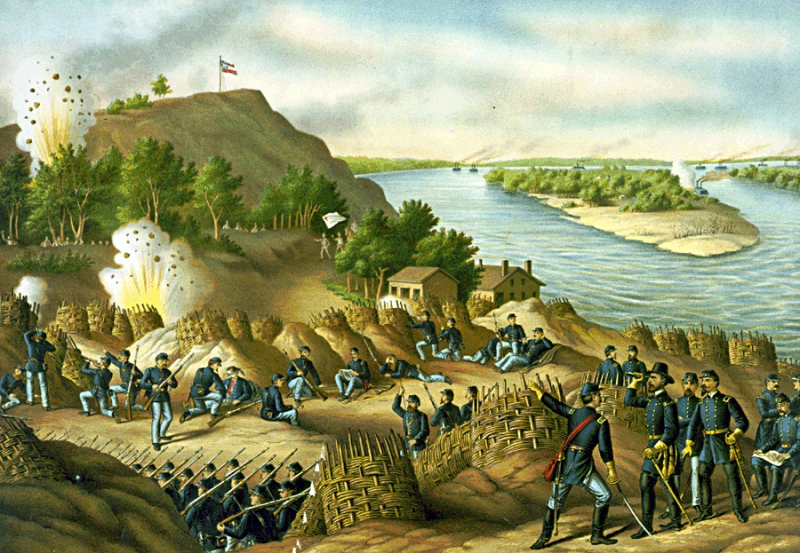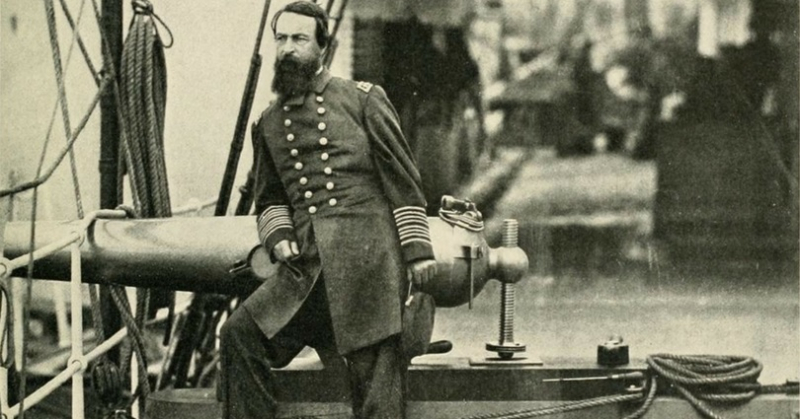Grant's infantry's success depended on the strength of Union naval operations
When David Dixon Porter was appointed to lead the Mississippi River Squadron, the naval detachment co-operating with Grant near Vicksburg, he was thrust into a command that far exceeded any he had held before, both in tonnage of ships and in importance of victory. Porter was a man of courage and skill, but he came to Vicksburg having made many enemies through his tendency to scorn superiors and play favorites among his inferiors. Nevertheless, the close working relationship that developed between Porter, Grant, and Sherman during the Vicksburg Campaign set the standard for joint operations in the West.
Porter’s conduct of his fleet during the Vicksburg campaign was unimpeachable. After months of failure trying to move infantry on the Memphis-Vicksburg overland line, it was Porter’s daring runs past the Vicksburg batteries on April 16 and 22, 1863 that moved enough river transports below the city for Grant to launch the decisive operation from the south. Porter's sailors were the first to occupy the abandoned Confederate base at Grand Gulf and, as Grant's army neared Vicksburg in mid-May, Porter set up a forward supply depot that allowed Grant to keep his troops supplied as they settled into final phases of the Vicksburg campaign. After the infantry invested the city in May, Porter's gunboats provided additional firepower to the Federal forces, lobbing roughly 22,000 shells into the Confederate fortifications over the course of the 39-day siege - an average of 564 per day. After the Confederate surrender, Porter, Grant, and Sherman shared a bottle of wine on the U.S.S. Blackhawk.













